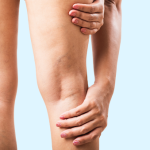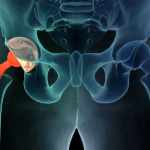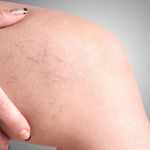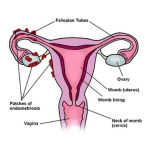Table of Contents
What is varicocele?
Varicocele is certainly similar in looks to a varicose vein, but it occurs only in men, and it appears in the region of the testicles, usually above the left testicle. However, its consequences can affect both testicles. Varicocele is quite common and occurs in more than 10% of men, often appearing in adolescence or early adulthood. (15 to 25 years old).
Is it an illness?
Having varicocele is considered a very frequent and progressive illness, it certainly affects mostly teenagers, but can also be found even in adults. It can cause testicular pain. This pain varies. Some patients experience mild, plain pain or even only a slight feeling of heaviness, that increases when sitting on chairs or tables, any hard surface in general, standing for long periods of time or simply, after performing physical exercise, especially for long periods of time. It can worsen over the course of the day and can be relieved when the patient lies on his back.
What are some of the symptoms of varicocele?
Varicocele Symptoms include:
-Enlarged and twisted veins in the scrotum.
-Painless testicular tumor, inflammation of the scrotum or protuberance within the scrotum.
-Possible problems with infertility or decreased sperm count.
What are some of the consequences of varicocele?
Varicoceles can also cause infertility, for that reason, it is necessary to diagnose them in its early stages. Varicocele is an enlargement of one of the veins that are located inside the scrotum. The scrotum is the skin bag that protects and holds the testicles in place. A varicocele is similar to the varicose veins known to appear on the legs of people with known blood circulation problems. Varicoceles are known to deter normal blood flow through the scrotum and damage sperm production in the long run.
They may also worsen in the long run but fortunately are easily treatable. If the symptoms are causing noticeable consequences, they can be treated with surgery. The problem is that a patient accumulates them; it may be painful and affect the reproductive health of the patient. Varicoceles can damage sperm due to the heat that they produce surrounding the testicles, on the spermatic cord, which is responsible for the transportation of blood to and from the testicles. It should be remembered that these organs need to be especially colder than the rest of the body to store sperm without damaging it.
What causes varicocele?
There are not scientifically verified causes of varicoceles, but some experts that have studied them believe that they form when the spermatic cord’s veins have their valves collapsed and caused bad functioning of the expected blood flow. Varicoceles occur when there are abnormalities in the veins of the testicles and can cause the decrease in the quantity and quality of sperm, in addition to reducing the size of the testicles (atrophy). The dilation that occurs can cause a backup in the veins, and they dilate. This then can damage the testicle and impair its correct functioning, later causing infertility.
When should you see a doctor?
The fact that it does not cause severe symptoms, varicocele treatment is often delayed. They can often be found during a fertility evaluation or a routine physical exam.
However, if you experience pain or swelling in the scrotum or discover a mass in the scrotum, contact your doctor. A series of conditions can cause a scrotal mass or testicular pain, some of which can require immediate treatment.
Are there particular risk factors?
It does not seem to have severe risk factors for the development of a varicocele in particular; however, some research suggests that being overweight can increase your risk of developing this illness.
How is it treated?
Varicocele treatment may include the following:
-Bed rest. Depending on the severity of your discomfort, you may want to stay in bed for a day or two.
-Raise your scrotum. While lying down, place a folded towel under the scrotum.
-Apply cold compresses on the scrotum. Wrap the package in a thin towel and remove the cold pack every 30 minutes or so to avoid damaging the skin. Ice should not be applied directly to the skin, as it can cause frostbite.
-Analgesics and anti-inflammatories. Non-steroidal anti-inflammatory drugs, such as ibuprofen or naproxen, and paracetamol can help with pain.
-Refrain from having sex and avoid lifting heavy objects.







